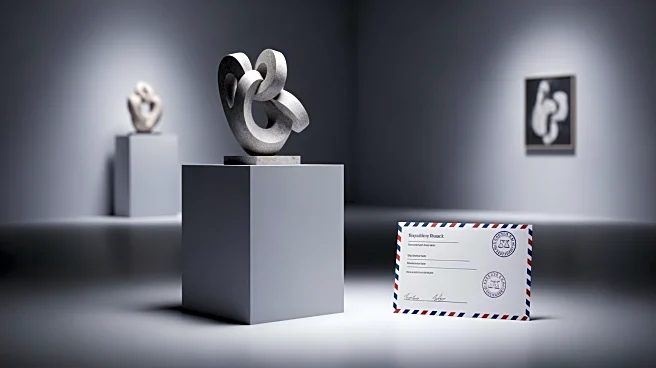What's Happening?
Hauser & Wirth, a prominent art gallery, has been charged by HM Revenue and Customs (HMRC) in the UK for allegedly breaching criminal sanctions. The charges stem from the sale of a work-on-paper by artist
George Condo to a Russian collector, Alexander Popov, between April 2022 and December 2022. This transaction reportedly violated UK sanctions that prohibit the export of luxury goods to individuals connected to Russia, a measure implemented in March 2022 following Russia's invasion of Ukraine. The gallery, headquartered in Switzerland, operates globally with locations including two in London. Hauser & Wirth has stated its commitment to legal compliance and intends to contest the charge, pleading not guilty.
Why It's Important?
The charges against Hauser & Wirth highlight the complexities and challenges faced by international businesses in navigating sanctions and compliance regulations. The case underscores the broader geopolitical tensions between Western nations and Russia, particularly in the wake of the Ukraine conflict. For the art industry, this incident serves as a cautionary tale about the risks associated with international transactions and the importance of adhering to legal frameworks. The outcome of this case could set a precedent for future enforcement actions and influence how galleries and collectors conduct business across borders.
What's Next?
A plea and trial preparation hearing is scheduled for December 16, where Hauser & Wirth will contest the charges. The gallery's legal strategy and the court's decision could impact its operations and reputation. Additionally, the case may prompt other galleries to reassess their compliance measures and transaction protocols to avoid similar legal challenges. The art world will be closely watching the proceedings, as they could influence future dealings with Russian collectors and the enforcement of sanctions.
Beyond the Headlines
This case raises ethical questions about the role of art in international diplomacy and the responsibilities of cultural institutions in times of conflict. It also highlights the potential for art to serve as a bridge between cultures, as exemplified by the Popov Art Foundation's mission to unite Eastern and Western art. The legal proceedings may spark discussions on the balance between cultural exchange and political accountability.











